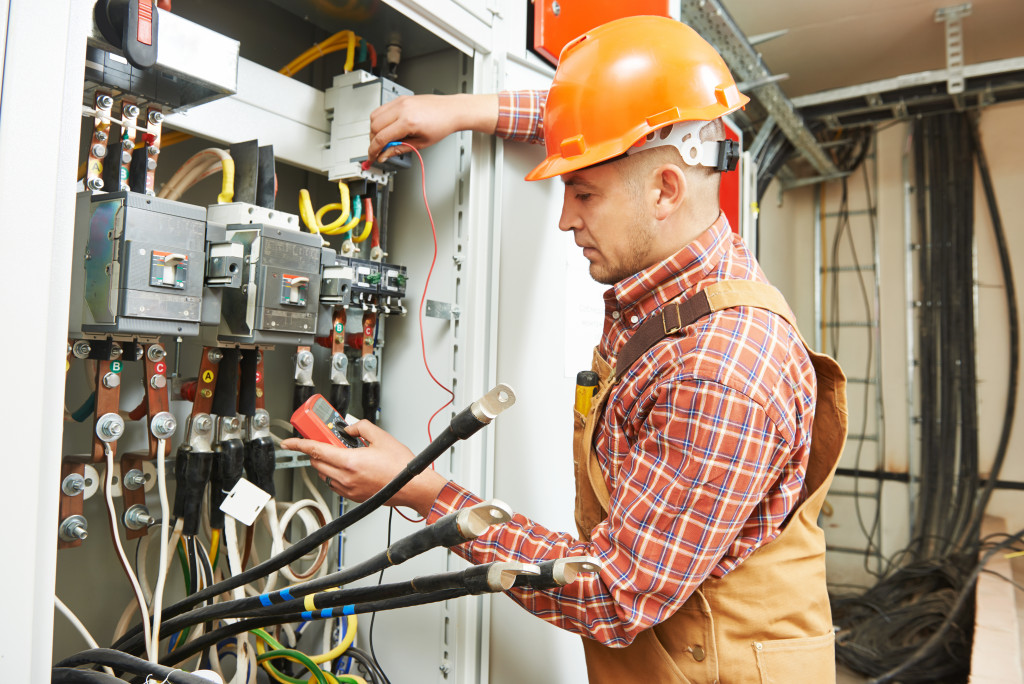A building quickly deteriorates when you don’t take good care of it. In fact, it only takes five to ten years for an abandoned structure to decay completely.
This is because buildings brave the elements and weaken over time. For example, metal, like steel or iron, will gradually rust when exposed to water if it is not maintained.
Whether it’s simply routinely polishing the floors or an SWPPP inspection with Silver Leaf, make sure to take care of your building to ensure that it lasts for years.
Here is a guide so you can conduct better maintenance on your property.
The Importance of Building Maintenance
For the most part, there are two reasons why you should be vigilant with your property’s upkeep.
For the Safety of People
The first reason you should always be on top of property upkeep is the safety of its occupants, regardless if they live or work there. Buildings become dangerous for several reasons like an uneven walkway or poor air circulation, and this is more likely to occur when the place is not cared for properly.
These hazards should and are taken seriously. In fact, there are safety codes in place by respected organizations like Occupational Health and Safety Administration (OSHA) and the National Fire Protection Association (NFPA).
By following their safety code, you will be able to prevent major accidents and health hazards.
For the Company
From a business standpoint, taking precautions will save you money. Preventive maintenance significantly costs less compared to an expensive urgent repair or replacement of a major system.
It is also simpler to make and stay within a budget with preventive maintenance that you know, as opposed to the expenses of unpredictable repairs and replacements.
Lastly, maintenance will not only help you save money but also increase your property’s value. If you decide to sell, rent, or lease your space in the future, a well-maintained building is worth more than a deteriorating one.
The Different Areas
When it comes to preventive maintenance, there are three key areas that should be part of your building maintenance property.
- Plumbing – Systems for plumbing should be checked for unusual noises, cracked pipes, and leaks at least once a year
- Electrical – Check batteries for safety-related appliances like smoke and carbon monoxide detectors as well as exhaust fans, outlets, switches, and wiring regularly
- HVAC – Full inspections of air filters, cleaning motors, and other heating, cooling, and ventilation systems should be done twice a year
What Causes Building Deterioration
Depending on what your property is made of, there are many reasons for its decline. Culprits may include:
- Frost damage
- Microbial growth
- Concrete corrosion
- Salt crystallization for buildings made of stone

Who Should Be Part of Your Team?
As mentioned, one of the goals of maintenance is to ensure that the building is a safe environment where its inhabitants can live or work.
To achieve this, there are different tasks that involve both the inside and outside of the property. There are also different people assigned. An average structure usually includes:
- A Janitorial Team – to perform common daily tasks like cleaning bathrooms, emptying the trash, and more
- Maintenance Technicians – to be responsible for the building’s HVAC, electrical, plumbing, and other systems
- A Maintenance Supervisor – to supervise plans, delegate tasks, and everything else that involves overlooking the building’s maintenance
Soft Skills
As with every industry, professionals should have the technical skills for the job but soft skills matter, too. When building or expanding your maintenance team, look for someone who:
- Pays attention to detail – so they can check if anything is off before the problem escalates
- Is a team player – since they will be most likely working with many people
- Has good problem-solving skills – since a building has different systems and the solution to a problem may not always be so straightforward
Certifications
A good technician is already knowledgeable about the industry but should be constantly expanding what they know. There are several certifications and resources available today if you want to increase the skills of your building’s maintenance team.
Building Systems Maintenance Certifications
This certification is offered by BOMI, an international institution focusing on property and facility management. Their course covers:
- Efficient Energy Management
- HVAC
- Plumbing
- Water Treatment Topics
Building Operator Certification
This certification is offered by a network of approved providers, like BOC for example. It covers energy management, electrical distribution, control point management, and HVAC.
HVACR Certification
There are apprenticeship programs offered that help professionals attain HVACR certification. In this program, you shadow seasoned HVAC technicians and so you learn on the job.
Afterward, they test whether you are knowledgeable about systems related to heating, ventilation, air conditioning, and radiation.

